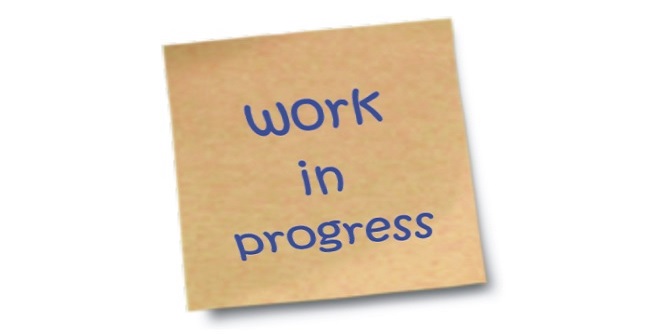The career you entered when leaving LSE might not be the one you continue with as your life progresses. With changes in the labour market, disruptions of technology and shifts in personal circumstances LSE alumni are likely to encounter many career changes.
Here we give you our top 20 tips for a successful career change…
Adopt the right mindset. Don’t assume that because you have an LSE degree, this is enough. Accept you have a lot to learn and that you may well need to up-skill in practical terms too.
Be open. Be clear about WHY you are changing career and see it as a strength rather than trying to hide it away. People are mostly attached to your motivation rather than your skills. Create a strong personal narrative that has the power to convince others that you mean business!
Expect a bit of an identity crisis. Your role typically forms a huge part of your personal identity. It’s never going to be easy switching from being a well-respected x to a junior y and starting again from scratch. Remember to keep the goal and your motivation in focus. Everyone’s been the new kid on the block. It won’t last forever!
Think transferability. Focus on the unique perspective and skills you bring and think about how your existing skills can apply in a new context. It’s highly likely many of your skills set are transferable, the key difference lies in how you talk about these skills. Use the language of the sector you want to transition to.
Lose your hang-ups. Don’t fixate on job titles and perceived levels in the organisational hierarchy. When changing career, it’s often more about getting yourself into the right environment and being with people who share a common mission and purpose.
Be brave! People may well think you’re a bit crazy for taking time out and giving up a well-paid job, only to have uncertainty and a diminishing bank balance take its place. But what’s the betting a part of them admires your bravery and wishes they were in your shoes? You owe it to yourself to strive for happiness in every area of your life. A job takes up too much time to not be interesting and fulfilling.
Make career change manageable. The example given was how would you go about eating an elephant? It would be totally overwhelming. You’ll need to push yourself to achieve your goal, but it’s important you take incremental steps to make it achievable.
Drive and determination are key. Personal characteristics and far more powerful than your hard skills and CV. Make sure the people around you know that you really want it. These characteristics are contagious and people respect you for that.
Make connections. You may not have a very clear idea of what you want to do (and how many of us actually do?) but think about your ‘happy points’. You may be surprised at some common threads running through your life.
Be confident. The thing about changing career is that you will NEVER feel totally ready. So much of successful career change is having the confidence to d. Think about your story so you are as prepared as possible to take opportunities and make connections when they are presented to you
Adaptability is key. Changing career is a challenge and some may question your ability to do it. You may indeed question yourself as you start to learn the ropes again. One of the main challenges can be adapting to different rules and domains and throwing off old ways of thinking. But things are often not as different as they first seem. Talk to people about what it’s like and look for ways to morph and learn.
Immerse yourself. Do everything you can to make connections, learn about your new area and get to know key people and companies. Many people are more than happy to share insights and, as we know, these encounters can not only help you decide if something is the right step but often results in finding out about possible opportunities before others do.
Join the dots. Reflect on your career, personal and academic life. Think about current interests, eg your dissertation topic and courses that really inspire you. Can you connect this with your career interests? Many of our panelists had looked back over what they’d done and identified areas of interest, successfully combining different things.
Be prepared for some difficult decisions. The change may mean making some tough decisions that affect you and others but address financial commitments head on. Review your commitments and be realistic. Do you really need x, or would y do instead?
Compromise isn’t always a bad thing. If it all seems too big a shift, then look for small steps and ways to transition and combine interests. In today’s workplace it doesn’t need to be all or nothing. There are opportunities to pursue multiple interests and have a ‘portfolio’ career.
Keep looking forward and don’t harbour regrets. The world of work is constantly changing and one of the results is, with the right foresight and preparation, it’s actually getting easier to change career. Many roles you’ll take on in the future don’t even currently exist. Start horizon scanning to know what skills may be in demand and do something about it to try and get ahead.
Think of negatives as opportunities. Re-frame your mindset and the problem. We all struggle with criticism and failure to different degrees but take feedback on board with an open mind and develop a resilient and objective outlook.
Bridge the gap. Use the connections and contacts in your old world to build a new network and make connections in your new world
Don’t be passive. Revisit that hamster wheel or ‘golden cage’ when things were just ‘happening’. Then think how good it felt to get off it! You need to stay active to manage the career change process.
Career change isn’t about being lucky. Of course serendipity plays a part but, like winning the lottery, it’s only going to happen if you buy a ticket. You need to get yourself out there!
And finally:
Be open to things, think about your dreams and remember it’s never too late!






Thank you so much for your information, you are a good author, the content you wrote, really helpful for me..please keep us updated.
You have an elegant profile which showcases your services, coaching expertise and experience to local and international clients. Connect with Achnet to promote your services all across the globe. Copy paste the link below: https://www.achnet.com/?utm_source=SEO&utm_medium=comments&utm_campaign=comments